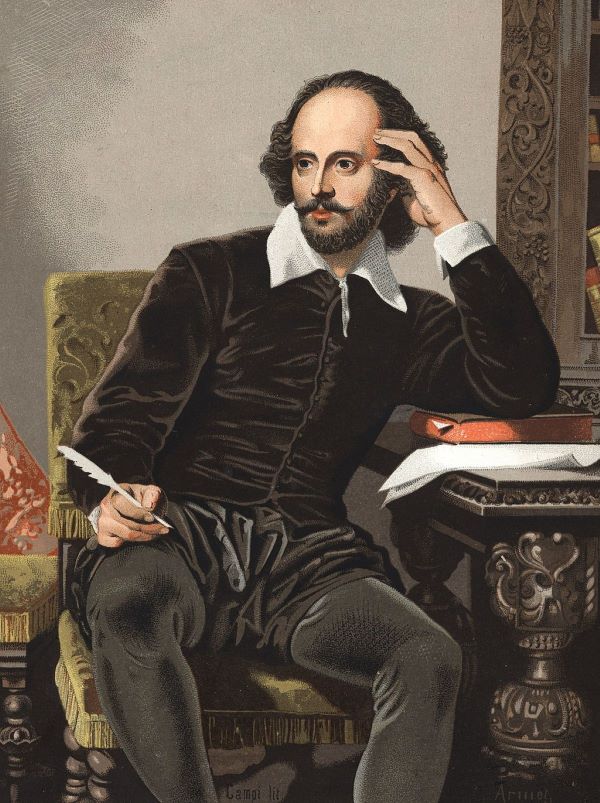Liberty Matters
The Corrupting Effects of Gonzalo’s Hypothetical ‘Man of System

In light of Sarah Skwire's astute observation that Prospero acts like Adam Smith's "man of system" as described in The Theory of Moral Sentiments, I would like to point out that The Tempest displays another man of system: the well-meaning councillor to King Alonso, Gonzalo. We do well to consider the significance of a character who demonstrates the opposite of moral corruption advocating a naively problematic scheme of government.
Gonzalo's benevolence is made clear throughout the play. In his list of characters, Shakespeare describes Gonzalo as "an honest old councillor." Prospero tells Miranda that Gonzalo's efforts amid Antonio's usurpation of Milan saved Prospero's and Miranda's lives and provided them with both various necessities and Prospero's books (I.ii.159-170). Indeed, Prospero seems to equate Gonzalo's goodness with "Providence divine" (159). Later, Ariel refers to the councillor as the one Prospero calls "the good old lord, Gonzalo" (V.i.15). Shortly thereafter, Prospero embraces Gonzalo, calling him "noble friend" (120).
Gonzalo's undeniably good character must be remembered when in Act II, scene i, Gonzalo waxes about how he would rule the island "were I king on 't" (148). His speech is interrupted and mocked by Sebastian and Antonio, who point out its absurdities:
Gon.I’ the commonwealth I would by contraries Execute all things; for no kind of traffic Would I admit; no name of magistrate; Letters should not be known; riches, poverty, And use of service, none; contract, succession, Bourn, bound of land, tilth, vineyard, none; No use of metal, corn, or wine, or oil; No occupation; all men idle, all; And women too, but innocent and pure; No sovereignty,—Seb.Yet he would be king on’t.Ant.The latter end of his commonwealth forgets the beginning.Gon.All things in common nature should produce Without sweat or endeavour: treason, felony, Sword, pike, knife, gun, or need of any engine, Would I not have; but nature should bring forth, Of its own kind, all foison, all abundance, To feed my innocent people.Seb.No marrying ’mong his subjects? None, man; all idle; whores and knaves.Gon.I would with such perfection govern, sir, To excel the golden ageSeb.Save his majesty!Ant.Long live Gonzalo! (150-72)
King Alonso wearily tells Gonzalo that he "talk[s] nothing" (173), and Lawrence E. Bowling employs understatement by writing that Gonzalo's "romantic commonwealth would not be practical."[53] Indeed, if we examine Gonzalo's plan more carefully, we may safely say that his highly prescriptive plan for his commonwealth would result in economic deprivation and martial vulnerability (in spite of his commonwealth's remote location), and it seems clear that the dangerously naive Gonzalo, who would be neither feared nor even loved once his plan inevitably failed, would be a sitting duck for the kind of usurpation his friend Prospero suffered 12 years earlier. Were I King Gonzalo's councillor, I would instruct him to read Smith's The Wealth of Nations I (focusing on matters of the division of labor and commerce) and IV.vii.b ("Causes of the Prosperity of New Colonies," especially paragraphs 1-3);[54] John Calvin's Institutes of the Christian Religion II.i.8-11 (on original sin, corruption, and depravity);[55] Romans 3:9-18 (on human depravity); and, with some misgivings, Machiavelli's The Prince, chapter 19 ("a prince must avoid being contemned and hated").[56]
Although Gonzalo's detailed outline of his hypothetical rule certainly smacks of Smith's description of "the man of system," it would be a mistake to suggest that, were Gonzalo to attain the kingship he speaks of, that he would fall into direct moral corruption. And we should observe, as Sebastian points out, that Gonzalo seems conflicted on the degree of power he would exert over his subjects. But were he able to effect the severe restrictions on commerce, agricultural development, industry, self-defense, and human relations that he outlines, his state would soon be in ruins and he would succeed in corrupting his resentful subjects. Such would be the unintended consequences of Gonzalo's proposed benevolent dictatorship and its unwise failure to address the painful realities of human nature.
Endnotes
[53.] Lawrence E. Bowling, "The Theme of Natural Order in The Tempest," College English 12.4 (1951): 205.
[54.] Adam Smith, An Inquiry into the Nature and Causes of the Wealth of Nations by Adam Smith, edited with an Introduction, Notes, Marginal Summary and an Enlarged Index by Edwin Cannan (London: Methuen, 1904). Vol. 2. Part Second: Causes of the Prosperity of new Colonies </titles/119#lf0206-02_label_174>.
[55.] John Calvin on original sin, corruption, and depravity (II.i.8-11) in John Calvin, The Institutes of the Christian Religion, trans. Henry Beveridge (Edinburgh: Calvin Translation Society, 1846). 2 volumes in 1. .
[56.] Machiavelli, The Prince, chapter 19 "A prince must avoid being contemned and hated" in The Historical, Political, and Diplomatic Writings of Niccolo Machiavelli, tr. from the Italian, by Christian E. Detmold (Boston, J. R. Osgood and company, 1882). Vol. 2. </titles/775>.
Copyright and Fair Use Statement
“Liberty Matters” is the copyright of Liberty Fund, Inc. This material is put on line to further the educational goals of Liberty Fund, Inc. These essays and responses may be quoted and otherwise used under “fair use” provisions for educational and academic purposes. To reprint these essays in course booklets requires the prior permission of Liberty Fund, Inc. Please contact oll@libertyfund.org if you have any questions.